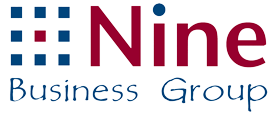The Ultimate Guide How to Find a Business Coach?
 Running a small business is no easy feat and and if you’re looking for business coach Calgary, you know who to go to. Entrepreneurs often face challenges related to growth, strategy, and operations that can hinder their progress. This is where professional coaching services come in – a professional who can provide guidance, advice, and practical solutions to help you achieve your business goals and take your business to the next level.
Running a small business is no easy feat and and if you’re looking for business coach Calgary, you know who to go to. Entrepreneurs often face challenges related to growth, strategy, and operations that can hinder their progress. This is where professional coaching services come in – a professional who can provide guidance, advice, and practical solutions to help you achieve your business goals and take your business to the next level.
Finding the right business coach is crucial to unleashing the full potential of your business. The right coach will not only provide expertise but will also understand your unique needs and challenges.
Business coaching is an industry that is well over 30 years old and may even unofficially be over 40 years old, with 20% to 35% of business owners using a coach. While many are familiar with the term “business coach,” not everyone knows how business coaching works, how it can benefit them, or what needs to be considered when hiring one.
In this guide, we’ll walk you through the process of choosing the perfect business coach, from understanding their role to evaluating their qualifications and ensuring compatibility.
Understanding the Importance of a Business Coach
The Role of a Business Coach in Your Success
A business coach plays a vital role in helping you grow your business and achieve business success. They provide objective insights, help you overcome obstacles, and hold you accountable to your goals. By offering fresh perspectives and proven strategies, a coach empowers you to make informed decisions that propel your business forward.
Benefits of Working with a Business Coach
- Objective Feedback: Coaches offer unbiased advice, helping you see areas of improvement that may be difficult to spot on your own.
- Strategic Planning: Coaches assist with long-term planning and goal setting, ensuring your vision aligns with business success.
- Increased Accountability: They keep you on track by regularly checking in on progress and offering guidance when you hit roadblocks and enhance business productivity.
Assessing Your Strengths and Weaknesses
Before you start searching for a coach, take time to assess your own strengths and weaknesses. Are you struggling with time management? Are you struggling with profitability? Do you need help scaling your business? Understanding your specific challenges will help you find a coach who can address them effectively.
Determining Your Goals and Objectives
Define clear goals and objectives for your coaching relationship. Whether you’re aiming to increase revenue, improve team dynamics, develop best practices or leadership coaching skills, knowing what you want to achieve will help you find a coach who specializes in those areas.
Exploring Different Coaching Styles
Not all business coaches operate in the same way. Understanding the different types of coaching available will help you find a match that suits your needs.
Executive Coaching
Executive coaches focus on leadership development and high-level decision-making. They’re ideal if you want to coach leaders or need help with managing a growing team.
Small Business Coaching
A small business coach specializes in addressing the unique challenges faced by smaller companies, such as financial management, marketing, and operations. This coaching is especially relevant if you’re focused on scaling and fine-tuning your processes to take your business to the next level and achieve remarkable growth.
One-on-one coaching
One-to-one coaching offers personalized guidance, disc report, tailored to your specific needs. It’s ideal for business owners looking for detailed attention to particular issues such as growth strategies or overcoming turnover challenges.
Team Coaching
If your business struggles with internal communication or teamwork, a group coaching approach can help improve collaboration, resolve conflicts, and foster a more productive work environment, ultimately improving overall business performance.
Small Group Coaching
The addition of small group coaching over the years has been a great adaptation for entrepreneurs looking to benefit from coaching. Small Group Coaching places 3-6 entrepreneurs into a group; they all benefit from the frequency and cadence of a weekly program, all while benefiting from the reduced fee.
Finding Potential Business Coaches
Once you’ve determined your needs, the next step is to find potential coaches who fit your criteria.
Online Resources
The internet is a wonderful place to start your search. Websites like LinkedIn, coaching directories, coaching programs, and coaching session reviews can provide detailed profiles of professionals.
Networking
Attend local business events, seminars, or networking groups in Alberta to meet coaches in person. Word of mouth is often one of the best ways to find a coach who is well-regarded in every industry and trusted within your local community.
Referrals
Ask fellow entrepreneurs or business owners for recommendations. Referrals from people you trust can lead you to coaches with proven strategies for success who have had a positive impact on their businesses.
Evaluating Business Coaches
Once you have a list of potential coaches, it’s time to evaluate them based on key criteria.
Fun
First and foremost, your relationship with your coach should be fun. Business ownership should be enjoyable, and since we spend so much time thinking about and at work, working in our businesses, the relationship with your coach should also be enjoyable.
Financially Beneficial
What is the plan to “find the fee”? A coach should demonstrate strategies that will increase your revenue and profit in the short and long term to cover their fee. If a prospective coach cannot demonstrate these strategies and timelines, do not hire them.
A strong, competent, and experienced business coach should improve your profit by at least their fee within 4 to 6 months of starting the engagement. For example, if the typical fee is $3,000 per month, your business should see this increase in profit.
Once the “initial fee” is covered, the next profit layer should be a minimum of 5:1 ROI in the first 12–18 months and then a 10:1 ROI. For instance, if the coaching fee is $36,000 per year, there should be a $360,000 per year improvement in profit or equivalent benefit to the organization.
It is also critical that the coach provide a plan to track the results of the program.
Faster Results
Simply put, will you and your business achieve the same or greater results faster than you would without using a coach?
Guarantee
Does the prospective coach guarantee results? With over 30 years in the industry, there are proven methods and strategies to help you achieve your goals. If a prospective coach cannot offer a guarantee, keep looking.
Expertise & Experience
Caveat Emptor, let the buyer beware. You have no excuse for not finding and working with an experienced business coach. In an industry older than Google, Facebook, and social media, you need a coach with a proven track record. Consider the prospective coach’s industry knowledge, track record, and relevant certifications and credentials.
Hours Learning Per Year
Hours spent learning are crucial for many reasons. The top reason is whether the business coach dedicates time each year to learning and studying all things related to business coaching and their area of expertise. This includes attending conferences, staying updated on marketing strategies, leadership, management, financial knowledge, industry trends, and improving communication skills.
Another reason to assess a prospective coach’s free time learning is that the coaching world is easy to enter, with many calling themselves “business coaches” without ongoing education. Ensure your coach is committed to continuous learning.
Another way to assess expertise and experience is by reputation. Look for online reviews, testimonials, and client success stories to gain insight into the coach’s effectiveness, style, and impact.
Long-Term Support
A successful business coaching relationship can last for several years. Ask how the prospective coach handles and works with their clients throughout various growth stages, both business and personal. Does the coach provide other resources or expect you to source all the necessary tools? Additionally, does the coach have access to a network of other professionals to support your needs?
Coaching Style and Approach
The coaching style of the prospective coach should not be discernible by you. A great coach will adjust their style to make you feel welcome, heard, and understood. They should switch between the communication style you like and the one you need. A successful coaching relationship is about what you need to achieve your vision and goals.
Communication Skills
Effective communication skills are essential. Evaluate the coach’s ability to communicate complex concepts clearly and understandably. Their listening skills are equally important—assess their ability to hear what you say and rephrase it in a way that reflects your words, feelings, and intentions. Constructive and actionable feedback is vital. The coach should provide insights that challenge you and offer actionable strategies and direction.
Personal Development
This is the most important aspect of your relationship with a business coach. Most entrepreneurs seek a business coach to solve a problem, overcome an obstacle, and achieve business objectives like revenue targets, sales goals, or profit improvements. To change your business results, you must change. A coach’s job is to grow your mindset, leadership skills, communication skills, emotional intelligence, and other critical decision-making skills so you can continue to grow and scale your business and the people around you.
By carefully considering these factors, you can find a business coach well-suited to help you achieve your business goals and foster your growth as a business leader.
Qualifications and Credentials
Check whether the coach has relevant certifications or credentials from reputable coaching organizations. A certified coach will have the necessary training to help you achieve your business goals.
Chemistry and Compatibility
Your relationship with a coach is built on trust and communication. During an initial consultation, assess whether you feel comfortable and understood by the coach. 1-on-1 business coaching requires strong compatibility to be effective and deliver results.
Conclusion
Finding the right business coach is essential for every business to achieve remarkable growth and gain clarity. By understanding your goals, exploring different coaching styles, and evaluating coaches based on their qualifications, experience, and compatibility, you can ensure a productive coaching relationship.
Take the time to research and connect with potential coaches. The right coach will not only guide you but also empower you to achieve your goals and grow your business with confidence and success in today’s competitive business landscape.

